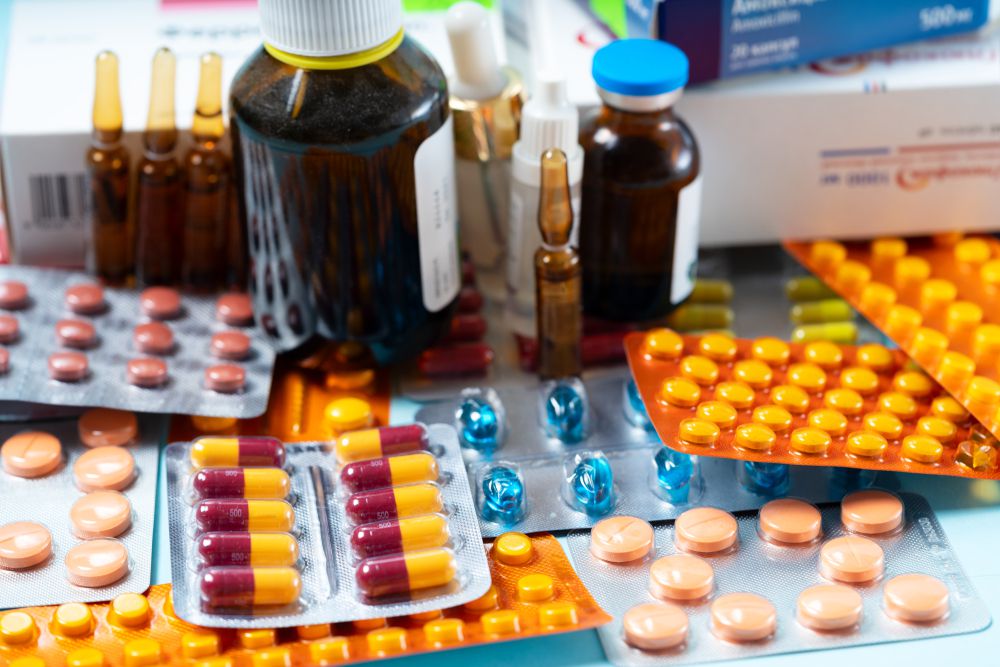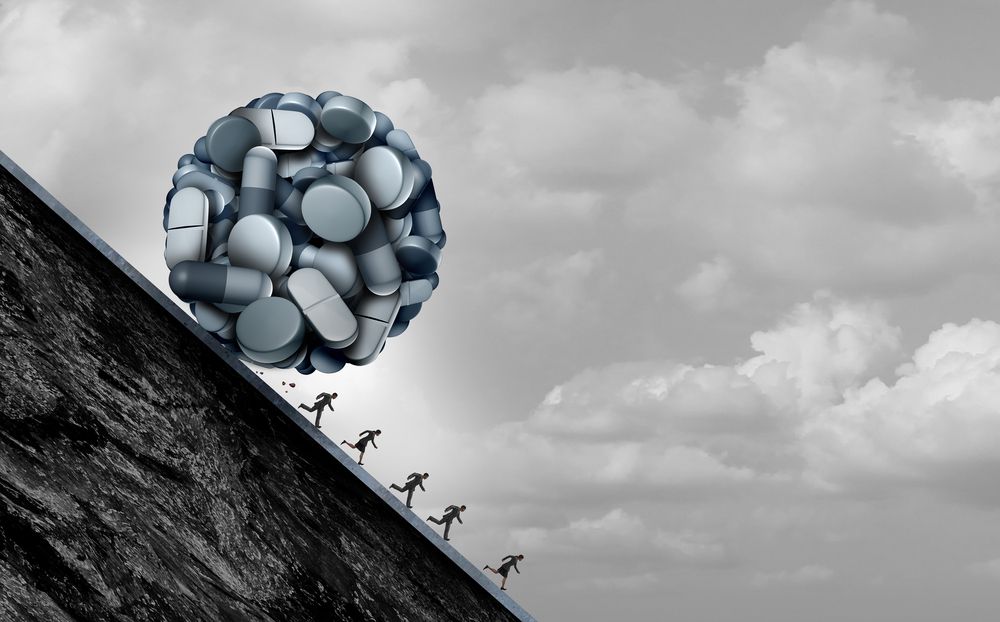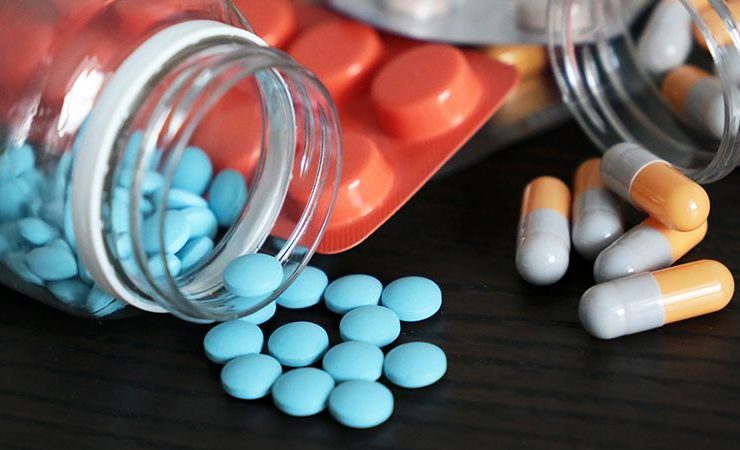Why Do Most People Get Addicted to Prescription Drugs?
In Canada today, addiction to prescription drugs is increasing at an alarming rate. Yes, people abuse prescription drugs too. Even worse, more often than not, such action leads to a dependence on the drug. According to world statistics, about 10% of people who are given prescription drugs as medication will eventually become addicted to the drug. This number also holds in Canada. The reasons people abuse these drugs are numerous. However, this behaviour puts them at risk of substance addiction and severe health complications.
Many people assume drug abuse only happens with ‘street drugs’ such as heroin and cocaine. However, addiction is, in fact, more common with prescription drugs. Every year, more than 15 million people around the world develop an addiction to these drugs. Some of these drugs include opioid painkillers, anxiety medication, sedatives and stimulants. Unsurprisingly, you are not alone in wondering how people get addicted to these prescription drugs. Thankfully, we have answers for you.
In this article, you will discover the reasons people abuse prescription drugs. Furthermore, we will also help you differentiate between prescription drug use and its abuse. That is not all. We will also shed light on the signs and symptoms that tell you if you or your loved ones have developed an addiction to a prescription drug. But first, let us start from the ground and work our way up. Let’s take a look at what prescription drugs are and why they are so addictive.
What Are Prescription Drugs?
A prescription drug is a pharmaceutical drug that requires you to have a written prescription by a licensed medical practitioner before you can acquire it. This is rather unlike over-the-counter medicine that you can obtain without any prescription.
Prescription drugs are controlled in this way because they contain active ingredients that people can quickly develop an addiction to. That is, drug abuse and dependence is a greater danger with a prescription drug.
Generally, prescription drugs are more potent than over-the-counter medication. This also means that they can have much more significant side effects if you misuse them. In essence, prescription drug abuse is when you take medication for reasons other than why your doctor prescribed it. Also, if you take more than the recommended dosage, you are abusing the drug.
According to the stats, about 22% of Canadians above 15 years use one or more psychoactive prescription drugs. Some of the drugs that fall under this category and are commonly abused include:
- Opioid pain relievers – Morphine, Codeine, OxyContin, Vicodin, etc.
- Central Nervous System (CNS) Depressants – Valium, Xanax, etc.
- Stimulants – Dextrostat, Ritalin, Adderall, etc.
Related article: How To Treat Prescription Drug Abuse
Can Prescription Drugs Be Addictive?
The straightforward answer is ‘Yes,’ and we will tell you why. Prescription drugs are usually strong medications. Furthermore, some prescription drugs are similar to controlled substances in that they can affect how your brain works over time. Such drugs influence the brain’s neurotransmitters and can affect its reward system. So, if you continue the inappropriate use of such medication, your self-control will decline in the long run. This will lead to further dependence and, of course, an addiction to the prescription drug.
Furthermore, by choosing to use the wrong dosage of prescription drugs, your body may develop a tolerance. In this case, to feel the same effect that you are used to, you will have to up your drug intake. For instance, if you abuse prescription pain medication, as time progresses, you may have to take more to achieve the same level of pain relief. This tolerance can then lead to dependency.
More often than not, drug abuse is how people get addicted to prescription drugs. Let us look at why addiction to prescription drugs is more rampant in recent times.
Why a Lot of People Get Addicted To Prescription Drugs
There are several reasons people abuse prescription drugs. These reasons include the following:
Prescription drugs are encouraged
The sad fact is that many doctors have very tight schedules and do not take the time to review their patient’s history thoroughly. This is especially true of doctors in major cities such as Vancouver and several others. Instead, they will write out a prescription and tell their patients that the drugs are all they need to get better.
Most patients either do not know better or are desperate to get over their pain, depression or whatnot. So, they are eager to listen to their doctor and religiously use them, side effects or not. In most cases, this is the beginning of an addiction to such prescription drugs.
The drugs are very effective
Most addictive prescription drugs are usually potent and effective. For instance, a person recovering from a major surgery feels better shortly after taking opioid painkillers. This, in itself, can become the reason some people develop an addiction to prescription drugs.
You see, the intensity of the problem is significantly reduced not long after ingesting the medication. Therefore, the medicine becomes the go-to when the issue comes up – whether it’s pain, stress, anxiety or depression.
This effectiveness can cause one to develop a dependence on the medication. As such, in a bid to deal with their condition or prevent a recurrence, people may reach out for the pill bottle more often than necessary. This results in prescription drug abuse and addiction.
Some prescription drugs reduce emotional pain
Emotional pain is not uncommon with patients in Canada, and indeed all around the world. Sometimes, prescription drugs have the effect of being able to block out the pain. This is partly due to the way these drugs affect the brain. So, even if the pill is not intended to block out this pain, it may happen regardless.
The emotional pain-blocking effect of some prescription drugs is the reason some people develop an addiction to it. In such cases, the users continuously use these medications to deal with their unwanted feelings instead of seeking therapy.
They seek pleasure from the drugs
Several prescription drugs influence the neurotransmitters of the brain resulting in a euphoric state in its users. Other times, it induces an intensely heightened state of relaxation.
As they do very little to achieve these states (asides from using these drugs), these effects can quickly become addictive. These pleasurable and relaxing effects of prescription drugs are among the more common reasons people develop an addiction to such medication.
They develop a tolerance
It is not uncommon for users of some prescription drugs to build a tolerance for such medication. This is particularly common among people who take such medications regularly over extended periods.
People who develop a tolerance to specific drugs will find that they must take an increased dosage to achieve the same desired effect. This is a red flag of a growing dependence and addiction. Rather than abuse the drugs by taking more than necessary, such patients must speak with their doctor.
Symptoms of Prescription Drug Addiction
Are you wondering how to figure out if you or your loved one has become addicted to prescription drugs? Here are some signs that can help you.
- Excessive mood swings or hostility
- Using higher doses than instructed
- Increase or decrease in sleep
- Poor-decision making
- Looking high, unusually excited, or sedated
- Frequently ‘losing’ prescriptions thereby requiring more prescriptions
- Going to multiple doctors for the same prescription
- Forging, stealing, buying, or selling prescriptions
Final Take
It is safe to say that most people, if not all, who suffer from prescription drug addiction, did not set out with that goal in mind. However, seemingly trivial things like upping your dosage now and then can quickly contribute to your drug dependence.
If you find that you exhibit some of the symptoms above, it is not a time to panic. You can get drug abuse and addiction treatment in Vancouver. Call Inspire Change Drug Rehab in Vancouver for addiction treatment programs. Send us a message or call 888-5089-802 today!







